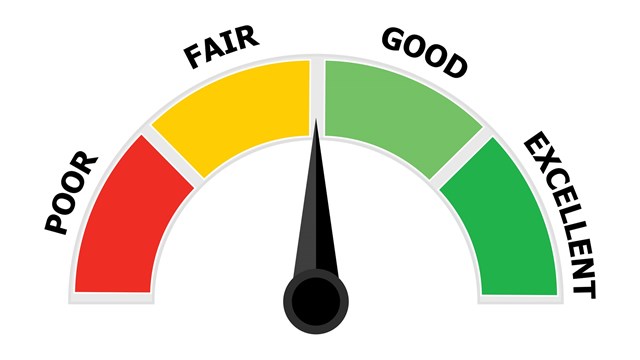
A capital improvement, as the name suggests, is any property enhancement—or "improvement"—that increases its overall value—or "capital." Capital improvements can be undertaken by individual owners as well as co-op or condo boards. The range of what constitutes capital improvements is vast. Installing a new window in the bathroom of a single unit is a capital improvement; so is installing a new roof for every tower in Co-op City.
Whether or not an improvement is considered capital or not is important for one reason and one reason only: money. How an improvement is classified has a pronounced effect on taxes, both individual and collective. In some cases, it is more prudent to have an enhancement classified as a capital improvement. In other cases, it is more prudent to write the cost off as a simple business expense. In the case of a co-op, the former is usually preferable—but not always.
Not Always Black-and-White
Interior design is more of a gray area in terms of capital improvements. Often, some aspects of an interior design project—like upgrading electrical systems, or installing new walls and windows—are considered capital improvements, while others—such as fresh paint—are not.
Complicating matters is the fact that the tax codes governing co-ops are vastly different from the ones governing condominiums. A new roof, for example, is a capital improvement in a co-op, but not in a condo.
Before you vote on whether or not to proceed with an interior design project in your building or individual unit this year, find out whether it classifies as a capital improvement. The answer will have far reaching effects—both potentially negative or potentially positive—on your bottom line.
The Fine Print
"A capital improvement is any improvement to a structure that adds value to a property or substantially prolongs its life," explains Rich Lospinoso, Jr., a certified public accountant based in Manhattan.
Examples include new roofs, new windows, updated HVAC systems, power generators, and—in a new wrinkle—certain technologies like solar panels that are more energy efficient.
"Generator, new roof, new lobby, corridor renovation, new windows are the ones we see most frequently," says Richard Siegler, a partner with Stroock & Stroock & Lavan LLP, a Manhattan-based law firm.
When asked if it is harder to classify a lobby re-design as a capital improvement than it would be for a more cut-and-dried boiler replacement or façade refurbishment, Siegler responds, "Not really. As long as the useful life is more than a year."
Siegler refers to a capital improvement as "an accounting concoction." And so it is.
The term capital improvement derives from the accounting industry. It is a device CPAs use to spread the cost of an improvement—which tends to be high, relative to the other fixed costs accrued by the co-op or condo association during the course of the fiscal year - over more than one tax year.
"You can depreciate it over the useful life, as the government allows by the depreciation schedules," Lospinoso explains.
Buildings, for example, have a useful life of a hundred years, according to the government. Roofs have a useful life of 27.5 years, furniture, seven years. So the cost of a new roof may be depreciated over the course of 27.5 years—as long as the building is less than 70.5 years old.
An Appreciation of Depreciation
According to the experts, there are two ways for a building to write off an expenditure on their tax form—as a capital improvement, or as an expense. The primary difference between them is that expenses only count for one fiscal year, while depreciated assets—like a new roof, say—counts for more than one. Up to 30, in that case.
There are advantages and disadvantages to both methods, and they generally depend on whether the one paying for the enhancement is an entity, like a co-op association, or an individual, like one of its owners.
"Capital improvements add to the cost basis, so when you sell the property, you have less capital gains," Lospinoso says. "It could adversely impact the cost burden at the time of sale."
This is well and good for an individual unit owner who has sprung for a new bathroom, but co-op and condo associations aren't typically sold.
The main advantage in writing off a large expenditure like a new roof as an expense, rather than a capital improvement, is to decrease the amount of income the government is able to tax for that fiscal year.
"If I was Donald Trump, and I had half a million in income," Siegler says, "I'd want to run up my expenses" to decrease the tax exposure. "Co-ops are not Donald Trump. They have little incentive to not have capital improvements."
The only possible drawback to writing off enhancements as capital improvements comes at the bank.
"It could have an impact if the co-op decides to refinance," Lospinoso says.
Indeed, the revenue generated by most co-ops is merely sufficient to cover the year's expenses (in a good year, when assessments aren't necessary).
"Co-ops are basically not-for-profits," Siegler says. "They're not worried about money. They have maintenance fees to offset costs, and that doesn't impact the income statement directly."
That said, co-ops collect more money that condos do, generally, simply because the cooperative association owns the building(s). So much money coming in can present challenges for accountants.
"Co-ops generally have operating losses over the years," says Howard Schulman, a partner and a CPA with Berndon LLP. In many cases, improvements were depreciated for so long, and the co-ops themselves were so old, that they found themselves in a precarious tax position. "Some of them ran out of depreciation," he says, "and many co-ops found themselves liable for federal income tax."
Another, similar, problem was that the co-ops were paying off their original mortgages. With no mortgage interest to declare, they found their income suddenly much higher.
"Depreciation and mortgage interest go hand in hand," Schulman says.
Because co-op associations wished to avoid the dual potential tax hits, they borrowed additional money from the banks—creating new mortgage interest to deduct—and used the money to spawn a new wave of capital improvements: new roofs, new facades, new corridors, new everything. Not that this was purely motivated by fear of taxes; the reason the buildings had run out of depreciation and/or paid off their initial mortgages was because they were old, and, therefore, physically in need of repair.
Co-op vs. Condo
The tax laws governing co-ops, as mentioned previously, are completely different than the ones governing condos. This is because co-ops are owned by the cooperative association, with individuals owning not the unit itself but the proprietary shares. Condos, on the other hand, are owned by the individuals outright; the maintenance charges paid by condo owners are for common areas only. The professionals say that therein lies the distinction.
"With co-ops, most traditional things can be capital improvements," says Schulman. "Roofs, waterproofing—especially since Local Law 11—material that improves the life of the building, asbestos removal."
A good rule of thumb, he says, is that anything capitalized in commercial real estate can be capitalized in a co-op.
With condos, however, all bets are off.
"Most improvements are not to be taken as capital improvements," Schulman says of condos. Roofs, for example, are always deducted as expenses in condo associations. Generally, condo associations have funds for special projects like this.
Tangible property, he says, can generally be capitalized. So the new hip Swedish furniture in the common-area lobby is a capital improvement, but the roof on the building is not. Sound confusing? It is. That these things are determined by the common interest realty association (CIRA) accounting rules is small consolation.
"Condo taxes are very complicated," Schulman says, understating matters.
CPA = Call Professional Accountant
At the end of the day, involving the best professionals you can find is a vital part of navigating the tax ramifications of your capital improvement project. Siegler, whose knowledge of capital improvements is vast, nonetheless says, "You know, you should really call an accountant."
This is the best possible advice for anyone thinking about making an interior design improvement this year, whether an individual, a co-op, or a condo association. The rules are tricky, and the pitfalls for not understanding them are indeed quite dangerous. In conclusion, before committing to a new project, call your friendly CPA.
Greg Olear is a freelance writer and a frequent contributor to The Cooperator.









28 Comments
Leave a Comment